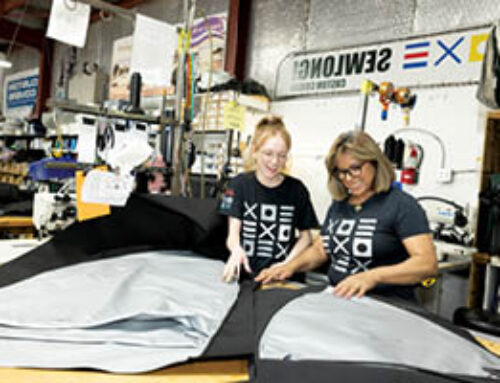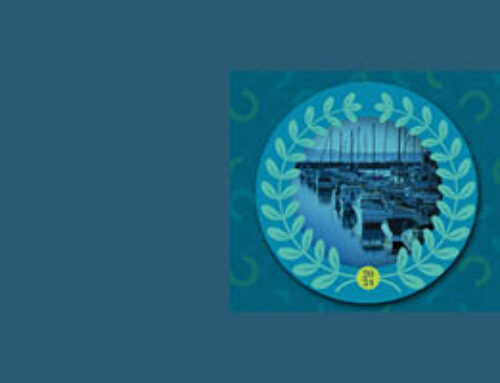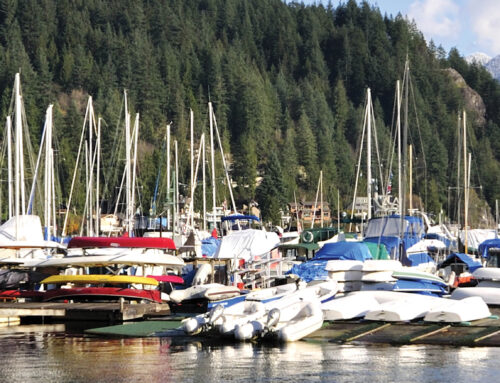Say yes to the odd request
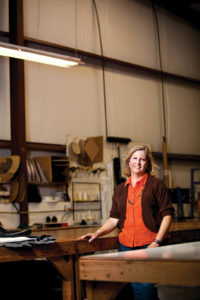
Jeri Perillo, president of Custom Canvas of Charleston in Charleston, S.C. Photo: Betsy Hansen
“The relationships we’ve built that have resulted in revenue streams weren’t something we went looking for; they came to us,” says Jeri Perillo, president of Custom Canvas of Charleston in Charleston, S.C. “If you do a good job on the small stuff, the big stuff will follow.”
Jeri, who purchased the marine canvas shop with her husband, Jim, in 1999, was unfamiliar with the inner workings of the marine industry but she knew how to sew, and she knew how to run a business. “Jim had been around boats his whole life and though he now works at Custom Canvas, when we bought the company he still had a full-time job,” Jeri says. “So, as a part of the sales agreement, we negotiated that the previous owner, Julia Jowers, would stay on for a while to help with the transition.”
Julia stayed on for two months, at a salary, teaching Jeri boating terminology and the particulars of patterning and sewing marine materials. “At first the sheer size of the materials was a little overwhelming,” she says. “But Julia was so good at teaching that it felt pretty easy.” In the past, Jeri owned a decorative arts business and Jim owned a trucking company, so they both understood the fundamentals of running a small business.
Paying attention
Saying “yes” to most every opportunity that presents itself, even if it isn’t marine-related, is at the core of Jeri’s approach to business—and that strategy has resulted in multiple income sources for the company. “It’s kind of like what realtors say about ‘location, location, location,’” Jeri says. “I think for us it’s ‘diversity, diversity, diversity.’ When one revenue area is slowing down, another is picking up.”
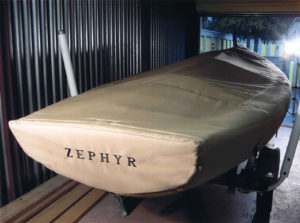
The cover for this 20-foot double-masted sailboat, which won an Outstanding Achievement Award in the MFA Excellence Awards contest, is fully padded with 1-inch foam and lined with fleece and includes padded and lined covers for the mast, sails, seats and keel. The name was embroidered before the cover was fabricated.
The first such revenue stream started more than 10 years ago when a man walked into Jeri’s shop looking for someone to repair a suitcase that was ripped on one side and had a broken zipper. “I didn’t know the man; I didn’t know what business he had,” Jeri says. “I just fixed the suitcase. It only took a couple of minutes and I didn’t charge him. I told him to just come back if he ever needed anything else.”
The man, who owned a sailboat manufacturing company, returned in a few days to ask Jeri to repair a sailboat cover—and then another and another. What struck Jeri as odd was that the covers were new, but each of them had something wrong with the way they were sewn. “I offered to sew the covers right from the start,” she says. “And if there was a problem, we’d be right here to fix it. We talked about it for a few weeks and that’s what ended up happening.”
Government contracts
Years later another man stopped by the shop with pieces of fabric that were already cut and ready to sew into dome-shaped covers—but he was having trouble finding someone who could sew the pieces correctly. “I told him I’d take care of it and that he should come back in an hour,” Jeri says. “When he returned and saw that the finished product was what he wanted, he retrieved the pieces for six more covers from his truck. Turns out he was from SPAWAR [The Space and Naval Warfare Systems Command]. Months down the road they ordered hundreds more of the covers from us.”
Working for the government has been a good income source for the company, but has also required patience and creativity. The first step, Jeri says, is to register to do work for the government as a contractor, which is done online and can take a few days. “Then you need patience,” she says. “Once you’ve bid on a project it can take several months for the government to decide if it’s going to accept it.”
Once the project has been accepted, Jeri’s company, which consists of Jim, their son Joe and two sewers in addition to herself, needs to find additional help to fill the order. The company hires temporary sewers when it can and subcontracts some portions of the work if necessary. “For a recent government project, Rainier Fabric Solutions, Tukwila, Wash., laser-cut pieces of Phifertex® mesh for covers we made to go over communications equipment.”
Jeri says the other challenge in working for the government has to do with deposits. “The government is hesitant to give a deposit, which has at times been tricky,” Jeri says. “We simply do not work without a deposit.” Putting the deposit on a credit card and keeping it under a minimum amount has been a strategy that has worked for smaller orders. “For big contracts we need to have 50 percent up front,” she says. “Though the government doesn’t like to do it, we just hold firm and eventually we receive a deposit.”
Online opportunity
Perhaps the most significant “walk-in” for Custom Canvas of Charleston happened seven years ago when an established marine customer brought his kayak in to have a cover made. “We had never done a kayak cover before, but we took on the project and the customer was really happy with it,” Jeri says. “He suggested we start making kayak covers as a part of our business—and offered to help in any way he could.”
As the Perillos formulated a business plan for this new segment of the company, they called the customer periodically with questions about how the cover was holding up, whether the material and straps were adequate, and what the range of kayak sizes and costs were. The Perillos created an online portion of the business in which clients can order standard-sized covers or custom covers for kayaks. “It’s probably about 15 percent of our business now,” Jeri says. “And it’s all done online.
“If we’re passionate about anything it’s about trying new things. We just put our heads together and say: ‘We can do this.’”
Sigrid Tornquist is a freelance writer from St. Paul, Minn.
 TEXTILES.ORG
TEXTILES.ORG 


